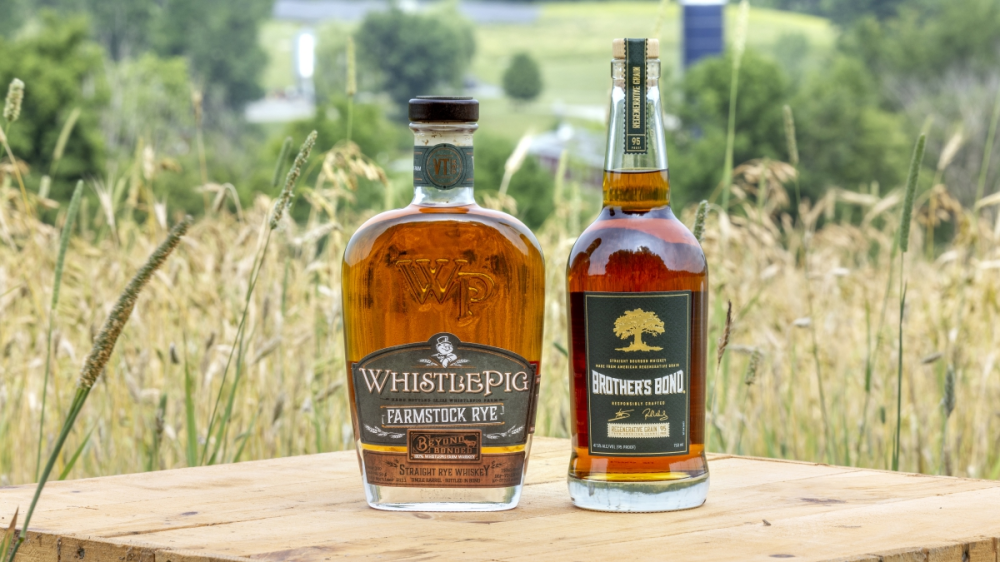A Revolution in Whiskey Making: An Introduction
Sustainable approaches, such as regenerative agriculture, have recently taken center stage in the whiskey sector. Both the land and whiskey are being revitalized by this new strategy, which is also improving its quality and flavor profile. This new fad is challenging distillers to boost their game by producing eco-friendly spirits with unparalleled flavor.
Regenerative Agriculture: A Foundational Framework
Beyond sustainable farming, regenerative agriculture aims to restore ecosystems, increase biodiversity, and improve soil health. Important guidelines comprise:
Plant Health: Increasing soil organic matter increases plant health by increasing water retention and nutrient availability.
Biodiversity: Plant and animal species diversity promotes ecological equilibrium and lessens reliance on chemical inputs.
Carbon Sequestration: Regenerative farming contributes to the fight against climate change by advocating methods that store carbon in soil.
All parts of the ecosystem, including the social and economic ones, are taken into account in holistic management.
The Impact of Regenerative Methods on Whiskey Grade
Elevated Grain Standard
A whisky’s quality is proportional the grains that go into making it. The use of regenerative farming techniques enhances the nutritional value and taste compounds of grains, which in turn improves the whiskey’s quality. A stronger spirit is the result of healthier soil, which in turn creates robust crops, which in turn provide grains with a more complex and nuanced profile.
Unique Terrain
Even though terroir is more commonly linked with wine, it is becoming more important in whiskey making as well. Soil type, weather patterns, and agricultural techniques are just a few of the factors that influence grain quality. Whiskey made using regenerative agriculture improves in all these ways, making it more unique and genuine.
Responsible Water Management
Whiskey cannot be made without water. The use of irrigation is minimized by the implementation of regenerative agriculture practices, which enhance soil water retention. In addition to reducing water use, this method guarantees that the water utilized is of superior quality and devoid of impurities that could alter the whiskey’s taste.
Leading distillers are embracing regenerative practices: a case study
The Environmental Goals of WhistlePig
Within the whiskey industry, WhistlePig has become a frontrunner in the shift towards regenerative agriculture. The fact that they just worked with Brothers Bond to create a whiskey that represents regenerative agricultural practices shows how committed they are to these practices. Soil health and biodiversity are WhistlePig’s primary concerns, allowing them to craft an eco-friendly spirit that is equally flavorful and sophisticated.
Regenerative Whiskey’s New Gold Standard: Brothers Bond
In an effort to highlight the possibilities of regenerative agriculture, Brothers Bond has collaborated with WhistlePig to distill a whiskey. This collaboration demonstrates the successful integration of regenerative approaches into large-scale production without sacrificing quality. As a result, distillers of the future can look to this whiskey as an example of the quality of the land from which it originates.
Regenerative Practices: Whiskey’s Future and Their Widespread Adoption in the Industry
More distilleries are likely to implement regenerative agriculture approaches as the advantages of these methods become more widely recognized. This change offers a great chance for the whiskey sector to improve product quality while reducing its impact on the environment. There will be a surge in demand from environmentally conscious and quality-conscious consumers for distillers that use regenerative agriculture practices.
Knowledge of Customers and Their Needs
Modern shoppers are increasingly aware of the effects of their purchases on the environment. The whisky business is not immune to the growing desire for products created using regenerative processes. Brands that can genuinely show their support for these behaviors will connect with this expanding consumer segment.
In sum, whisky’s future depends on protecting the environment.
A potential future for whiskey can be found in regenerative agriculture. Distillers may make a positive impact on the environment and create better spirits by emphasizing soil health, biodiversity, and sustainable water usage. We may anticipate a new benchmark in whiskey production—one that is environmentally friendly and delicious—as more distilleries embrace these approaches.










